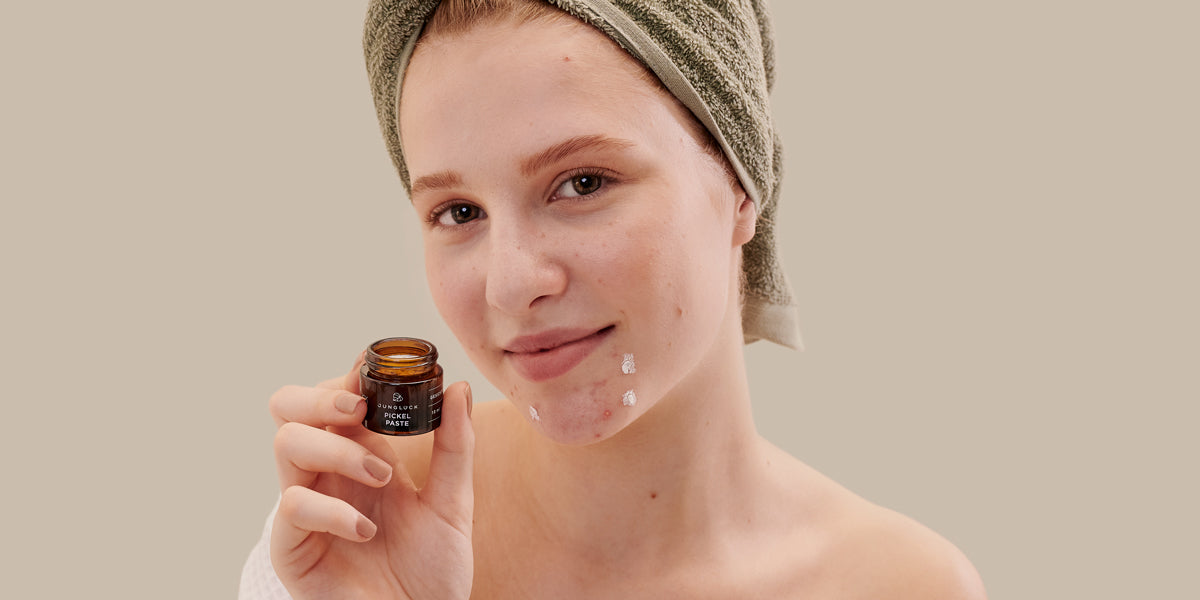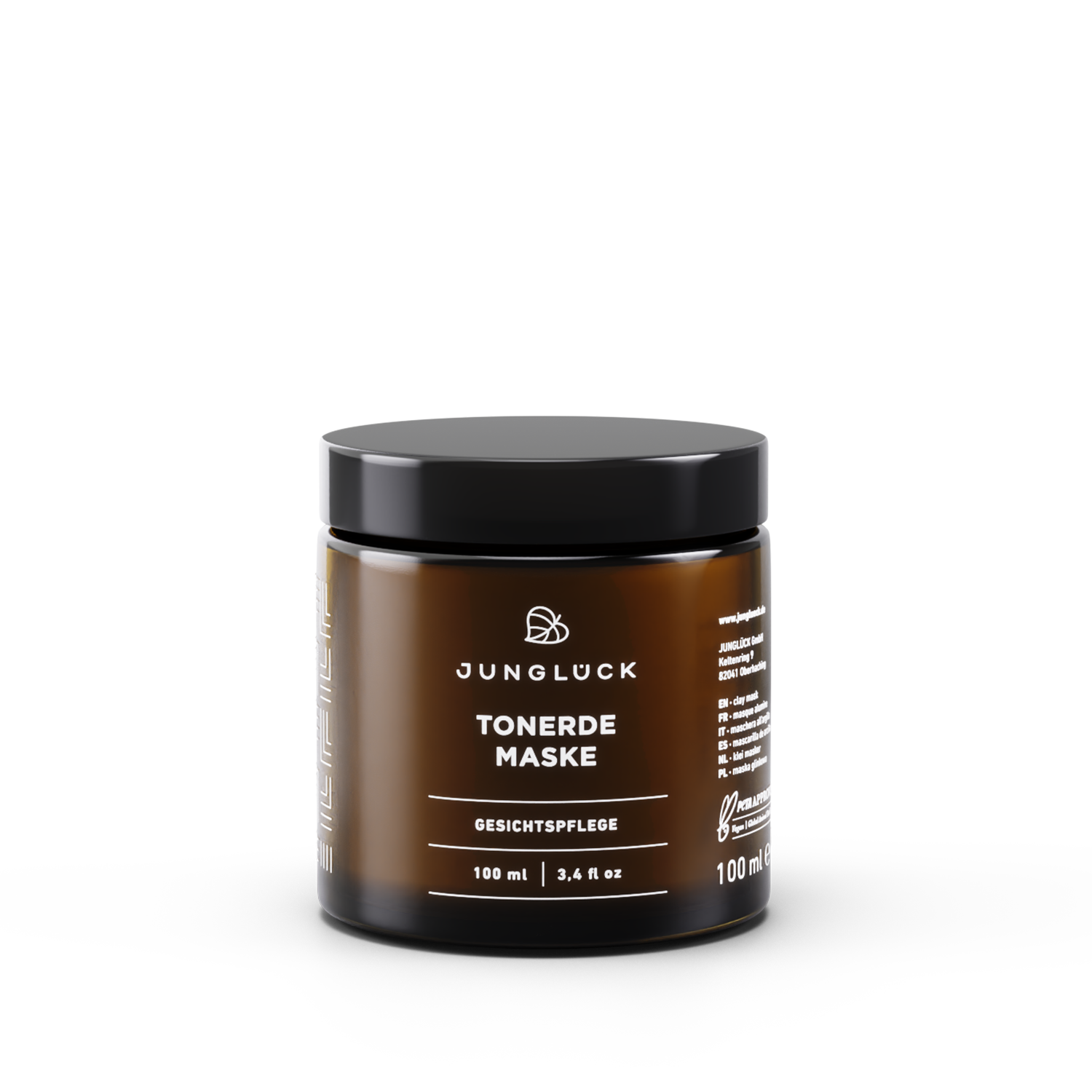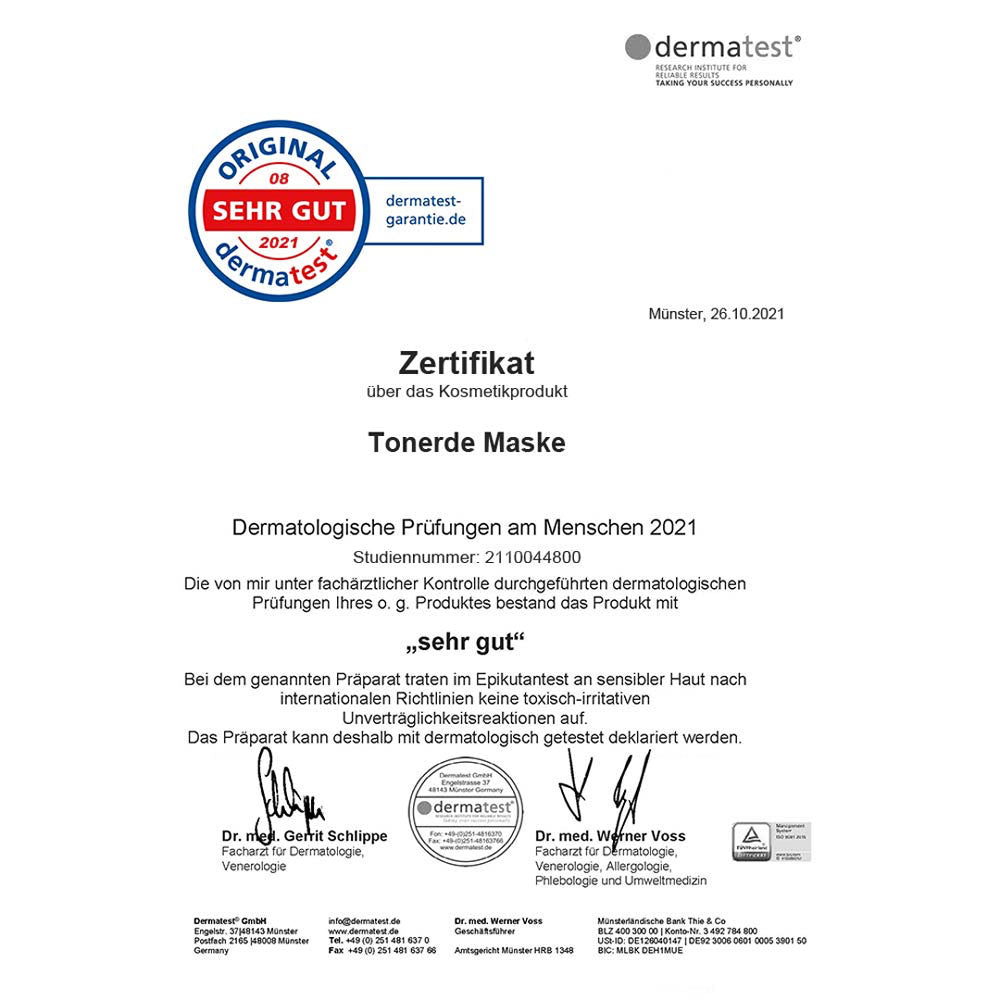IF YOU'RE PREGNANT, SO IS YOUR SKIN. THE RIGHT SKIN CARE DURING AND AFTER PREGNANCY.
Pregnancy. An exciting and, for many women, initially unfamiliar time. Many questions come up that you have never asked yourself before. When you're pregnant, you're no longer just thinking for yourself. You want your baby to be born healthy, protected and safe.
This is usually also a time when you think more than ever about which substances, foods, medicines and care products you really want and are allowed to consume. Are you also looking for the right skincare that you can use without hesitation during pregnancy? As I receive a lot of messages about suitable skincare during pregnancy, I would like to shed some light on the subject here.
HORMONES CONTROL THE TEXTURE OF YOUR SKIN
Pregnancy changes your hormone balance. But I probably don't need to tell you that. After all, if you are pregnant, who will know better than you! However, you may not be aware of how many processes these hormones really control in your body. Oestrogen and progesterone are also responsible for the texture of your skin, among other things.
It is often said that a woman glows during pregnancy and is blessed with even skin, full hair and bliss. Unfortunately, this is not always the case and many pregnant women struggle with itching, burning, dry skin, discoloration and acne.
What's more, our skin absorbs many of the substances we put on it apply! Another reason to be well informed. And not only, but especially during pregnancy. So what's in the creams and serums you use? I have a few tips for you here:
SKIN PROBLEMS AND CHANGES DURING PREGNANCY
Unfortunately, the skin is not always spared and "beautified" during pregnancy; as already mentioned, some pregnant women have to struggle with one or two skin problems. But don't worry, there are a few ways to combat these:
2.1. blemish prone skin during pregnancy?
Yes, this is where hormones come into play again. Similar to puberty, the body undergoes major changes during pregnancy and the new hormone cocktail alters sebum production and blood circulation in the skin. Pimples can be the result.
And what helps with blemishes and spots during pregnancy?
- Mild cleanser (pH value between 5.5 - 6.5) - without rubbing the skin Cleanse, then dab dry // e.g. the Cleansing Oil or the Cleansing Gel (both suitable for oily skin)
- This Azelaic acid serum takes acute care of impurities and at the same time has a mattifying effect against oily shine.
- Moisturizing day care with little to no fats and oils // e.g. the hyaluron Concentrate, aloe vera gel or spray - because a well moisturized skin has a faster self-healing process
- The Tonerde mask clears and removes blackheads and dead skin cells from your skin. After application, you can gently massage the mask with moistened hands leave-on to create an extra peeling effect. Then rinse thoroughly with lukewarm water rinse-off.
- Small jar, big effect: For the care of hormonal pimples during pregnancy or breastfeeding, you can use the Spot cream apply selectively, as shown in the picture above.
- Do not press! This prevents spots and the spread of bacteria
- If you do use make-up, make sure it is non-comedogenic and always remove your make-up thoroughly
2.2 Skin discoloration and pigmentation during pregnancy?
Melanin production in the skin also changes during pregnancy. Melanin is there so that the skin can protect itself from UV radiation Protect . The increased activity of the cells that produce melanin results in the light yellow to brownish spots that can disturb your reflection. The so-called melasma spots occur preferentially on areas of skin that are particularly frequently exposed to the sun, such as the forehead and nose. Even though these spots are harmless and often disappear again after pregnancy, some pregnant women would probably rather not have them.
One thing in particular helps here: sun screen! Every day. This is the best way to prevent the formation of pigmentation.
Gentle chemical peels are also often recommended to stimulate the skin's regeneration process. However, I would always advise consulting a dermatologist here. Especially during pregnancy, BHA peelings, i.e. peelings with Salicylic Acid, should be used with caution and only in very low concentrations.
2.3 Do you want to prevent stretch marks during pregnancy?
This is probably one of the biggest fears of every pregnant woman: Stretch marks!
If your skin is stretched too quickly and too much, it may not be able to keep up with the stretching. There is not enough elastin in the subcutis and the reddish, purple cracks appear. Your predisposition also plays a major role here and unfortunately there is no miracle cure.
So the best way to prevent stretch marks is to oil, massage, oil and massage again! Preferably every evening and every morning. This way you constantly supply your skin with important nutrients and it stays healthy and elastic for longer. This reduces the risk of stretch marks appearing. Particularly well tolerated is e.g. Almond Oil.
Tip: Don't forget your hands and feet. These are often neglected, especially towards the end of pregnancy. But regular care is more important for your well-being than you might think.
As you can see, there are several ways to treat your skin holistically and comprehensively during pregnancy Moisturize and for more extreme skin problems, I always recommend consulting your gynecologist or dermatologist.
2.4 And after breastfeeding? Which care is best then
After pregnancy, you're of course happy to have a baby. But your skin also needs a little attention to regenerate as quickly as possible. Pimples and pigmentation spots often disappear on their own. Stretch marks are a little more stubborn.
Retinal products, fruit acid peels and light treatments such as Intense Pulsed Light (IPL) or Pulsed Dye Layer (PDL) are used here to rid the skin of the reddish stripes.
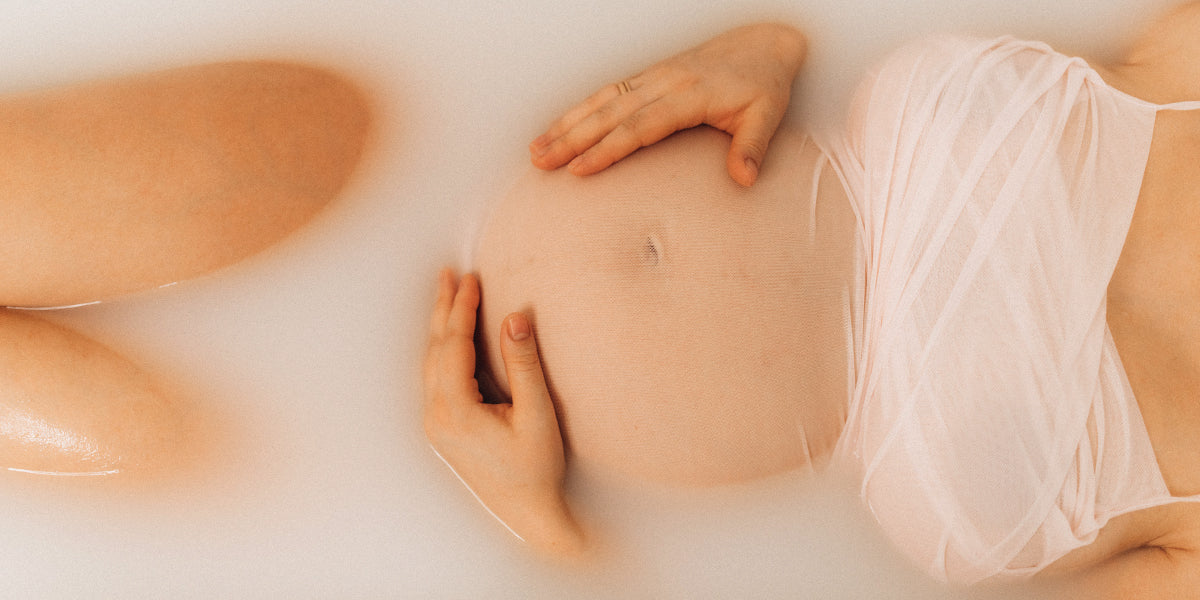
WHICH INGREDIENTS SHOULD YOU AVOID DURING PREGNANCY?
3.1 Retinal or retinoids (also known as vitamin A)
These ingredients can be found in the INCIs as follows: Retinyl palmitate, retinoic acid, retinaldehyde, adapalene, tretinoin, isotretinoin and tazarotene. If these substances enter the bloodstream, they can cause developmental disorders in the fetus and should therefore be avoided at all costs.
3.2 Parabens
These preservatives, which have already fallen into disrepute, are hormonally active. They are similar in structure to your female hormone oestrogen and therefore interfere with many processes in the body. Although parabens are not completely banned in cosmetic products, there is a lack of empirical data on their long-term effects. You will find them in the ingredients under the suffix -paraben, such as methylparaben.
3.3 Hydroquinone and skin lighteners in general
During pregnancy in particular, some women develop pigmentation spots and discoloration of the skin. Unfortunately, most of them are to face (more on this further down in the text). In this case, please do not use skin lightening products. The substances used to lighten the skin will enter your bloodstream and thus reach the fetus. They can also severely irritate your skin and trigger allergies. I will go into more detail about pigmentation spots and discoloration below.
3.4 Phthalates (plasticizers)
You should also avoid phthalates, which are often found in shampoos, various hair products, shower gels and sun creams. These plasticizers have the ending "-phthalate", or you can recognize them by abbreviations such as DEP and DMP. They are considered carcinogenic and can have a toxic effect on the embryo.
3.5 Formaldehyde
You will no doubt already be familiar with formaldehyde as a substance that you should avoid. Nevertheless, it can still be found in various products for nails and hair. So it's worth keeping an eye on it here too.
3.6 Fragrances and essential oils oils
Caution is also advised with artificial fragrances, perfumes and selected essential oils. They can harm the embryo and avoiding similar ingredients has hardly any disadvantages for you as an expectant or breastfeeding mother. You should therefore prefer unscented cosmetics. Fragrances are declared as follows: Citral, citronellol, geraniol, hexyl cinnamal, linalool, limonene, alpha-isomethyl ionone, benzyl alcohol and benzyl salicylate. Circulation-promoting essential oils such as aniseed, fennel, rosemary and Sage should also be avoided due to their labor-promoting properties.
3.7 Triclosan
This is also a preservative that is used in various cosmetic products to reduce microbial contamination. However, it is also said to have a nerve-damaging effect on the unborn child. Put it on the red list.
We avoid almost all of these ingredients in our JUNGLÜCK products from the outset. Except for retinal - we don't want to do without this active ingredient with its many good properties. This is because retinal is normally harmless and you should only avoid the active ingredient during pregnancy.
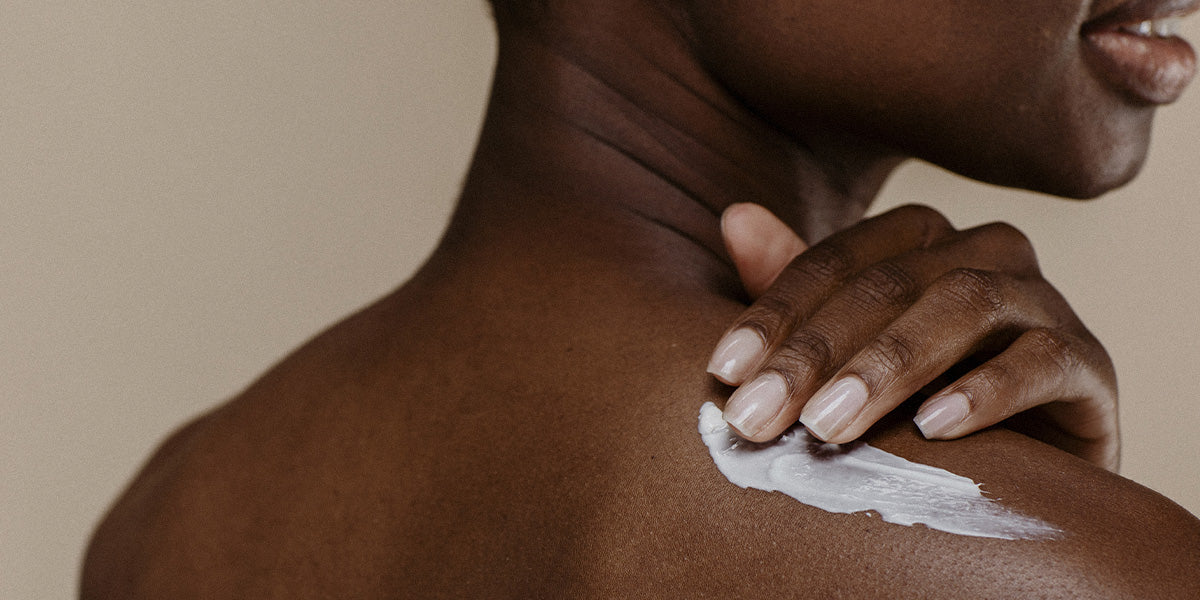
INGREDIENTS THAT YOU SHOULD GENERALLY AVOID
We consider the other ingredients to be unnecessary. Although they do not all harm the skin, they do not bring any benefits either. As a rule, they are simply a cheap substitute for high-quality vegetable fats and oils - one more reason to avoid them. Not only during pregnancy.
4.1 Silicones
Silicones are oily, petroleum-based plastics that are only effective on the surface of the skin. They seal the skin and harm the environment. Look out for terms ending in -cone or -xane, terms such as dimethicone, methicone, cyclomethicone and polysiloxane.
4.2 Mineral oils
Mineral oils are artificial fats derived from crude oil. The fats known as Vaseline, Paraffinum Liquidum, Paraffin, Microcristallina Wax Ceresin/Cera Microcristallina, Ozokerite, Mineral Oil and Petrolatum Treat are also occlusive (i.e. they seal the skin). The skin can no longer breathe properly underneath them and the sealing layer provides a good breeding ground for microorganisms.
4.3 Monohydric alcohols
These alcohols dry out the skin and at the same time damage the skin barrier. This leads to irritation. These alcohols should therefore generally be avoided in high concentrations. They can be found, for example, under the names alcohol, alcohol denat, ethanol, ethyl alcohol, methanol, propyl alcohol, propanol, isopropyl alcohol, isopropanol and benzyl alcohol.
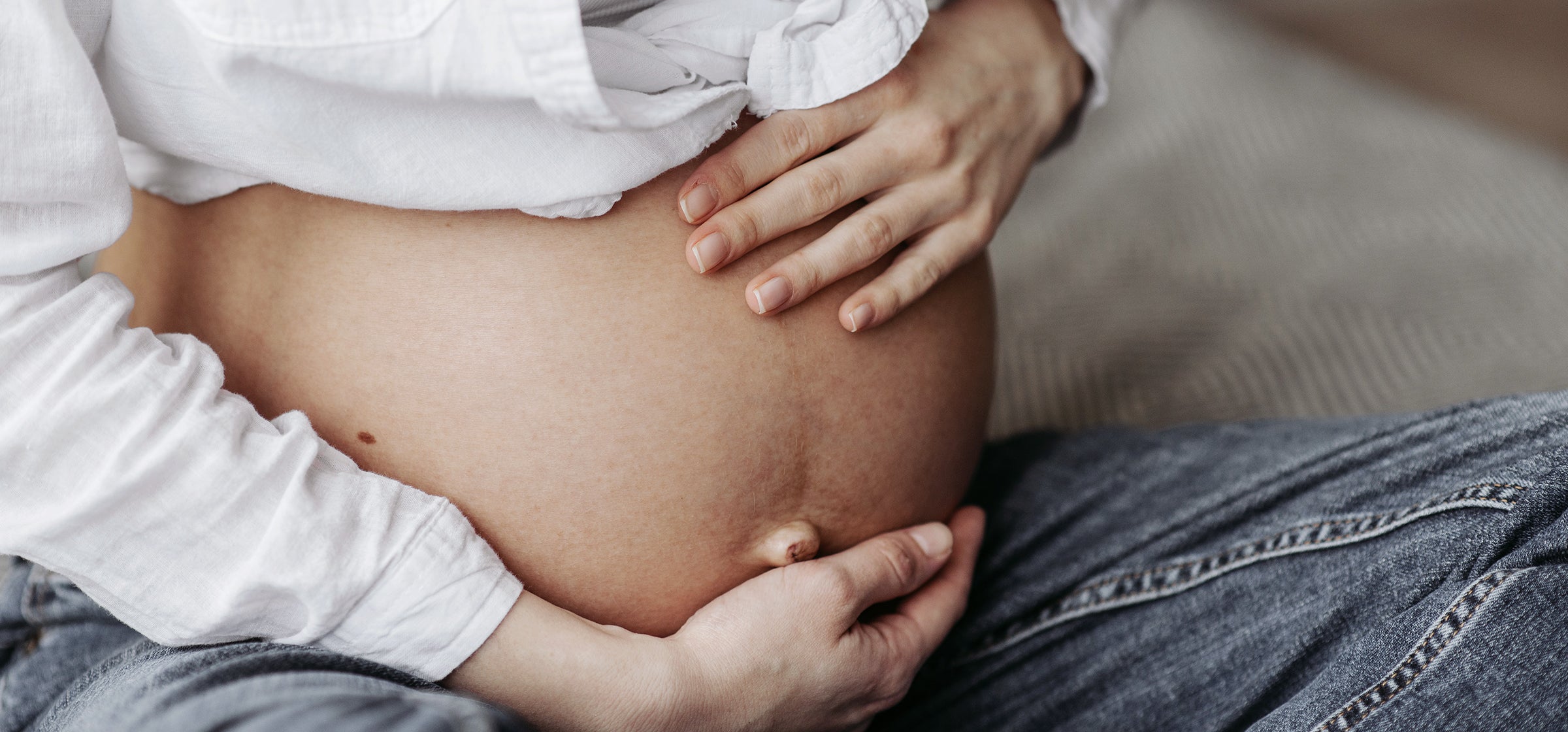
CONCLUSION: YOUR SKIN CARE DURING AND AFTER PREGNANCY
MY TIP: MAKE A CONSCIOUS DECISION ABOUT WHICH PRODUCTS YOU USE!
Pregnant or not: We deliberately avoid all questionable ingredients in our JUNGLÜCK products. You can therefore also use our entire range during pregnancy. Caution is only advised with: Retinal cream and serum and AHA peeling. AHA peeling is a small special case, as the concentration is particularly important here. Low-dose AHA and BHA products should generally not be a problem. This is because the concentration is crucial. As a precaution, however, I would avoid them.
In general, there is still a lack of experience regarding the use of many ingredients during pregnancy. So if you are not quite sure, it is always best to consult a doctor.
In short, it's important that you take a close look at the products you want to buy and scrutinize all the ingredients. Acquire your own knowledge. This will make you more confident when dealing with cosmetic products and at some point you will read the INCI information like baking ingredients! 🙂














